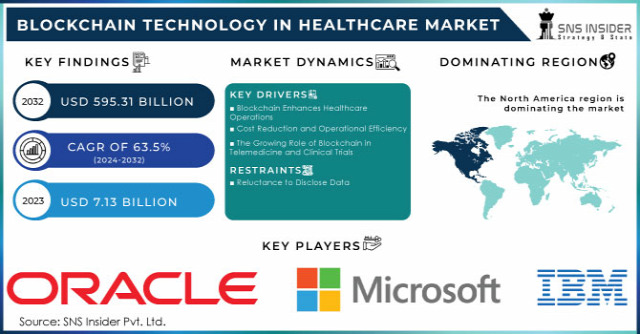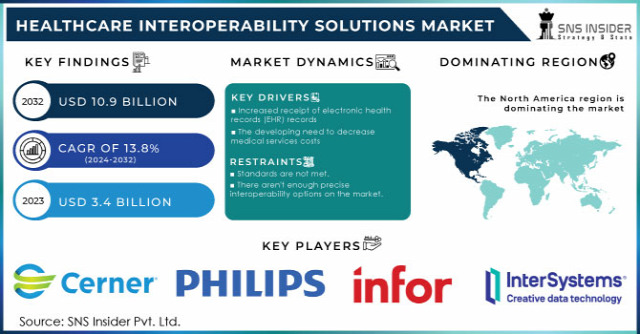The healthcare industry is undergoing a significant transformation, with technological advancements playing a key role in reshaping the landscape. One of the most promising innovations emerging in the sector is 4D printing technology, which is poised to revolutionize medical treatments and healthcare applications. According to the latest market report, the 4D Printing in Healthcare Market Revenue is expected to experience substantial growth in the coming years, driven by the increasing demand for personalized and advanced healthcare solutions.

The healthcare sector's adoption of 4D printing technology is rapidly gaining traction due to its ability to create self-transforming materials that react to external stimuli, such as temperature or moisture. These materials hold the potential to transform a wide array of medical devices, from prosthetics and implants to personalized drug delivery systems. The 4D printing process goes beyond traditional 3D printing by adding a time-based dimension that allows the objects to change their shape, structure, and function over time. As the technology continues to evolve, it promises to enhance the effectiveness of medical treatments, reduce costs, and offer innovative solutions to complex health challenges.
One of the primary factors driving the growth of the 4D printing in healthcare market is the increasing demand for personalized healthcare solutions. With the rise in chronic diseases and aging populations, there is a growing need for customized medical devices that cater to individual patient needs. 4D printing allows for the development of patient-specific devices that can adapt to the patient's body over time, ensuring better fit, comfort, and functionality. This personalized approach is not only improving patient outcomes but also leading to greater patient satisfaction and reduced recovery times.
Furthermore, 4D printing has the potential to significantly improve the field of regenerative medicine. By utilizing bio-responsive materials, researchers can design implants that change shape or release therapeutic substances in response to the body’s needs. This advancement could lead to breakthroughs in tissue engineering, creating more effective solutions for repairing damaged tissues and organs. Additionally, the ability to design complex, multi-functional medical devices that interact with the human body in real-time could reduce the need for invasive surgeries and improve the overall quality of life for patients.
Get Free Sample Report@ https://www.snsinsider.com/sample-request/2023
As with any new technology, the adoption of 4D printing in healthcare is not without challenges. The complexity of the technology, combined with the regulatory hurdles and high costs of implementation, presents barriers to widespread adoption. However, as the technology matures and becomes more affordable, it is expected to find its place in mainstream healthcare. The report predicts that the integration of 4D printing with artificial intelligence (AI) and machine learning (ML) will accelerate its growth, enabling more precise and efficient production of healthcare solutions.
The market report also highlights key players driving innovation in the 4D printing in healthcare market. Companies specializing in 3D printing, bio-printing, and material science are exploring new ways to integrate time-responsive materials into healthcare applications. Leading healthcare providers are partnering with these companies to bring 4D printing solutions to market, with the aim of improving medical outcomes and patient care.
The future of 4D printing in healthcare appears promising, with experts forecasting significant advances in the next decade. Researchers are focused on enhancing the capabilities of 4D printing by developing new materials and refining the printing process. Additionally, as regulatory bodies adapt to these emerging technologies, healthcare providers will likely gain clearer pathways to integrating 4D printing solutions into their practices. The benefits of improved patient outcomes, reduced costs, and more effective treatments make 4D printing a crucial technology for the healthcare sector's future.
In conclusion, the 4D Printing in Healthcare Market is set to experience robust growth, as the technology continues to evolve and transform the way medical devices and treatments are designed and delivered. The potential for personalized, time-responsive healthcare solutions will create new opportunities for patients, healthcare providers, and technology developers alike. As the healthcare industry moves towards more individualized and efficient care, 4D printing will play a pivotal role in shaping the future of medical treatments and devices.
About Us:
SNS Insider is one of the leading market research and consulting agencies that dominates the market research industry globally. Our company's aim is to give clients the knowledge they require in order to function in changing circumstances. In order to give you current, accurate market data, consumer insights, and opinions so that you can make decisions with confidence, we employ a variety of techniques, including surveys, video talks, and focus groups around the world.
Contact Us:
Akash Anand – Head of Business Development & Strategy
info@snsinsider.com
Phone: +1-415-230-0044 (US) | +91-7798602273 (IND)





